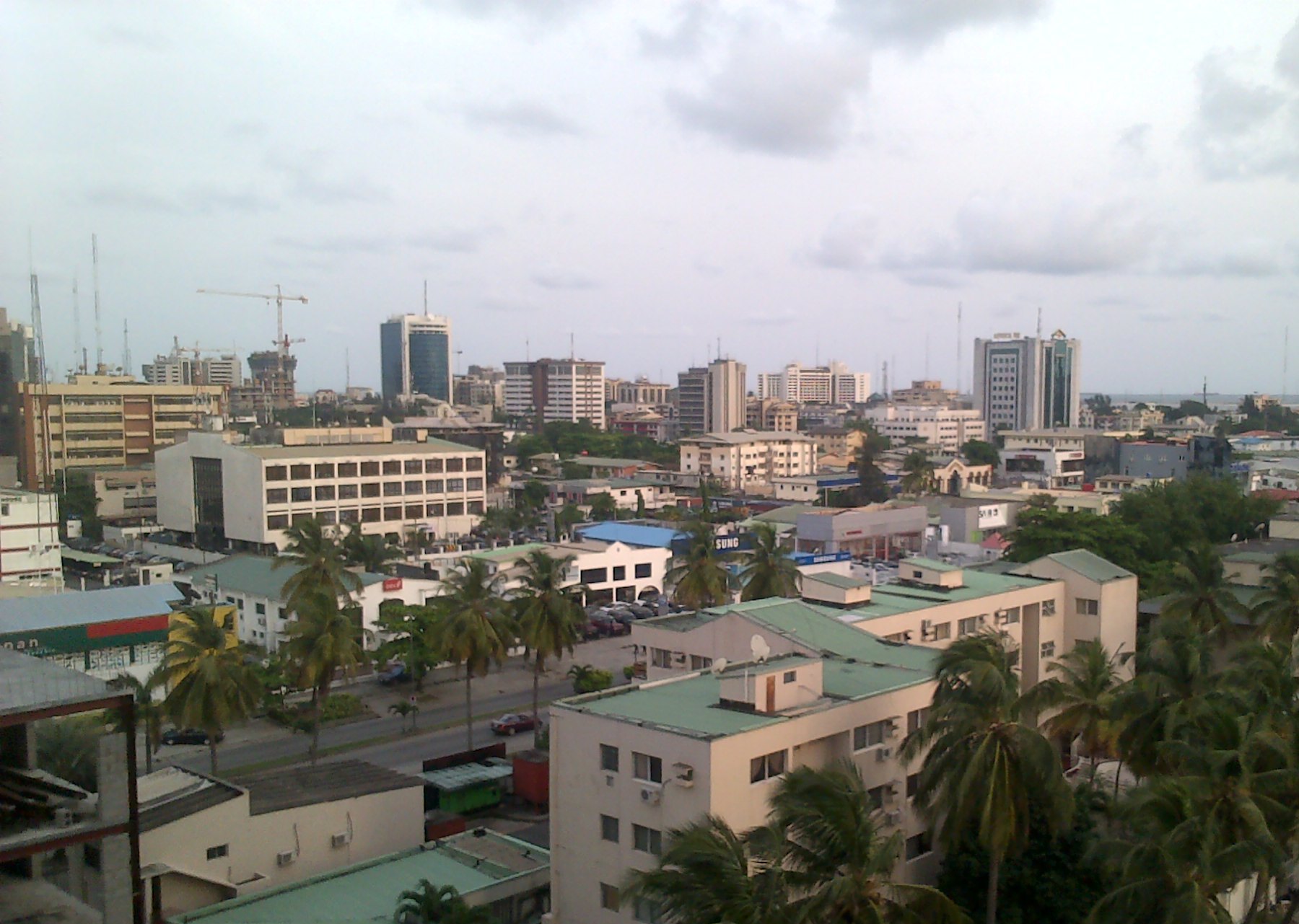Abraham Maslow identified the following as the basic needs of human: food, clothing and shelter. Accommodation or shelter is one of the basic needs of mankind, but the figures coming from the Ministry of housing is very scary and there is no hope of getting better. We currently have a housing deficit of between 16 million to 18 million housing units in the country. We will be discussing the problem and the solution.
Securing a decent and an affordable accommodation is a big problem in most of our major cities like Lagos, Abuja, Port-Harcourt, Kano, Onitsha, etc. With the continuous increase in the population of a city like Lagos that has the smallest land mass and the highest population in the country, it implies that the issue of accommodation in Lagos is what the government, private investors and employers of labour should tackle as soon as possible.
A lot of factors are responsible for the continuous increase in the housing deficit in Nigeria, some of the factors are cost of land, cost of building materials, lack of manpower in the building industry, lack of social housing programme, monetisation policy of government and employers, stagnation of the economy and government policy.
Cost of land in most cities are on the high side, the cost of a plot of land in the city of Lagos ranges from about N4 million to more than N500 million. For one to get a plot of land that costs less than N4 million, one will need to go to outskirts of the city like Ikorodu, Epe, Badagry or Ogun State. With the current cost of land it will be difficult for most workers in the country to own a house. The cost of building materials is high in Nigeria compared to some of the countries in Africa. A bag of cement sells for about N1,800 in Nigeria, while the same bag of cement sells for an average of N800 in most of the North African countries.
Another problem is lack of competent and truthful manpower in the building sector. I remember when my wife and I needed a good bricklayer for our house at Ajah, Lagos, the person that was recommended happened to be a Ghanaian, when we needed an artisan that will fix our wall and floor tiles the person I got was a Togolese. Our youths should be encouraged to learn the relevant trades and skills that can be used in the building industry.
The last time we had a real social housing programme in Lagos was between 1980 and 1983 when the government of Lateef Jakande built low-cost housing estates at Ajah, Epe, Ikorodu, Iba, Ojokoro, Isolo, Ipaja, Agege, etc. The housing programme of Jakande equally opened up some new areas in the state. What we now have as low-cost housing estates is where a housing unit built by government sells for about N10 million or more.
Monetisation of housing benefits to workers is now the in-thing in both public and private sectors. As a teenager in the mid 80s, I know employers who bought or built houses for their employees at Satellite Town, Festac Town, Agbara Estate, Ilupeju, Ikeja, Gbagada, Isolo, Ogba, etc. Most of those employees, who are now retirees are Landlords and Landladies in the listed locations because of their employers’ welfare and housing policies.
It is a known fact that our economy is stagnant that is if it is not retarding, the economic growth figures given by government should be taken with a pinch of salt because the workers and common men are yet to see the impact of our so-called economic growth. Unemployment is on the increase, those that are employed are underemployed or underpaid. Most workers can barely make ends meet with their income. As a result of the current state of our economy most employees will find it difficult to build or buy a house.
The policy of the states and Federal government is to maximise economic benefits without thinking about the social benefits to the citizens. That is why you see government building houses that sell for more than N40 million, in a country where the minimum wage is N18,000. I think anybody that wants a house of N40 million should be able to build that by himself. What government should focus on is how to build low-cost houses that sell for less than N5 million. We also have cases of estate entrepreneurs that wanted to build more than 100 units of low-cost houses that will cost less than N4 million to build a unit, but with government policy of maximising economic benefit through high cost of getting certificate of occupancy, land use tax, building plan approval charges, etc, the entrepreneurs found out that with all these charges they can only break even if they sell at a minimum of N6 million per housing unit.
In order to reduce the housing deficit in Nigeria the following should be considered: construction of infrastructure such as good road, rail system, etc, real estate investment firms need to change their business model, government owned real estate firms should be privatised and listed on the stock exchange, part of the accumulated pension funds should be invested in real estate, major cities should embrace urban renewal programme, workers should form housing co-operative societies, research into alternative building materials, employers should have housing grants as part of their workers fringe benefits, government needs to stimulate the nation’s economy, real estate investors need to be encouraged.
When we have good road networks and fast rail systems from Ibadan, Sagamu, Abeokuta, Ijebu-Ode, Badagry, Ikorodu, Epe to Lagos. People will be encouraged to live in the neighbouring towns and cities and work In Lagos. It is obvious that the cost of land is cheaper in Ibadan, Sagamu, Abeokuta and Ijebu-Ode compared to Lagos.
Real estate investment companies need to change their business model, the only real estate firm that is quoted on the stock exchange focused on premium housing and the high end of the property market. It is a known fact that the rental income and prices of high property have been on the decline since 2008 when the capital market meltdown started, whereas the rental income and prices of houses in the low to medium end of the property market is on the increase. Real estate investment firms should have subsidiaries that focus on building and selling housing units that cost between N5 million to N20 million.
I suggest that government owned property development companies or parastatals like Federal Housing Authority, Lagos State Development and Property Company, Ogun State Property Investment Corporation etc should be privatised and listed on the stock exchange. This will make them to be run and managed like a business organisation that makes profit or loss, pays tax, declares dividend and competes with other companies in the sector.
Part of the almost N3 trillion with the Pension Fund Custodians should be invested in real estates. Workers who have contributed substantial amount of money in their Retirement saving accounts should be encouraged to borrow against their RSA to invest in real estate.
Major cities in the country should embrace urban renewal programme. Land is a limiting factor in the city of Lagos, instead of building bungalows or a storey building. It will be better to convert or rebuild some of the houses in the city centres into skyscrapers so that the present land mass can accommodate more people.
The government needs to stimulate the economy so that more opportunities and wealth can be created for the people and by the people. When the economy is stimulated more jobs will be created, standard of living will increase and the Gross Domestic Product will soar. A major way whereby the economy can be stimulated is through the power sector reform and genuine deregulation of the oil and gas sector. With power sector reform, cost of producing building materials like cement, paints roofing sheets etc will come down. Genuine real estate investors who have the financial muscle to build a minimum of 100 units of low-cost houses should be encouraged by government through tax holiday, grants and other incentives.
Since we do not have a vibrant mortgage banking system in Nigeria, employees are advised to embrace housing co-operative societies. With this a low-income family, with a combined income of about a million Naira per annum will be able to build a low cost house within a few years. Employers of labour should have housing grants and housing loans as part of their employees’ benefits. The employers can also collaborate with builders and real estate investors on how to build housing estates for their employees.
People with the financial means, eg successful Businessmen, Professionals, Politicians, Corporate executives etc should invest in functional real estate as a way of reducing the housing deficit and also multiplying their own wealth. When I say functional real estate investment, I mean e.g an investment of N500 million building 50 housing units rather than on a mansion that does not create value or give rental income. The former provided accommodation for 50 families and about 150 people, while the latter provided for a family and may be 20 people. Our research Institutes, Polytechnics and Universities need to produce alternative building materials from clay, wood, plastic, sand etc as a means to reducing the cost of building houses in the country.
In order to solve the housing deficit problem in Nigeria, an investment of about N80 trillion or $500 billion need to be made over the next 10 years at an average of N8 trillion or $50 billion per annum. This was arrived at by multiplying the 16 million housing units deficit by N5 million which is the minimum average price of a low to medium-cost house. Solving the housing deficit problem in Nigeria is a capital intensive project but I believe that a journey of a thousand mile starts with a step, I hope the government, entrepreneurs, Nigerians, Institutional investors, employers of labour, financial institutions etc are willing to take the step that will redefine housing in Nigeria.
*For other investment related articles: INVESTMENT TALK WITH EMMA
Established in March 2013, JarusHub is a Nigerian information hub with focus on career and management. It is rated Nigeria's most authoritative destination for online career resources. It parades an array of Nigerian professionals who share their career experiences with a view to bridging career information gap and mentoring a generation to success. Whether you're a student, a recent graduate or an established professional, or even an executive, you will always find something to learn on JarusHub. All enquiries to jarushub@gmail.com or 0808 540 4500. Facebook: www.facebook.com/jarushub; Twitter: @jarushub or @mcjarus.
1 comment
Let us have your say by leaving a comment belowCancel reply
Recommended For You
-
Can Masters Degree Help in my Job Search After a lot of Rejections?
February 19, 2020











I got this from Thisday
The state governor, Mr. BabatundeFashola, had, in April, expressed the determination of his administration to tackle the menace headlong. Speaking at the second Corporate Assembly at the Lekki Free Trade Zone (LFTZ), Lekki, Lagos, he had lamented what he described as the unwholesome activities of the group.
Disclosing that a Bill had been sent to the Lagos State House of Assembly to criminalise illegal land grabbing which has assumed a frightening dimension in Lagos, Fashola said the Bill, when eventually passed into law, would completely phase the OmoOnile out of the state.
The Bill, which is already receiving the support of most members of the State Assembly, according to the chairman, Committee on Lands and Housing, Hon. BayoOsinowo, would end the havocs being wreaked by the street urchins.
“In Lagos State, land is our major resource. It is our petrol compared to oil producing states in the country,” he said, stressing that nothing would be too much to protect its sanctity.
In his own submission, the chairman, Committee on Judiciary, Human Rights and Public Petition, Hon. SanaiAgunbiade, expressed the hope that the Bill would also take care of land agents, who, according to him, parade themselves and seize the opportunity to take landed property forcefully, saying “The bill would protect potential buyer(s) from OmoOnilebefore or during construction work.”